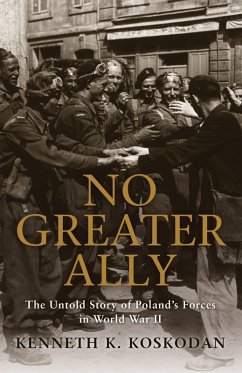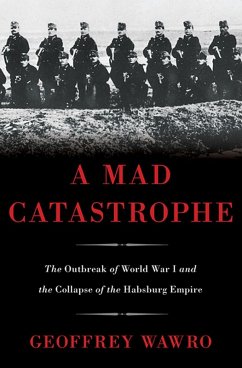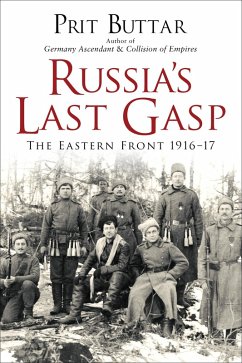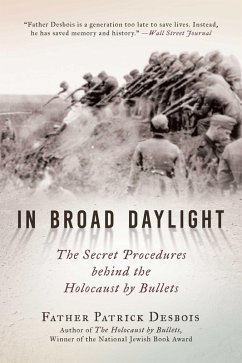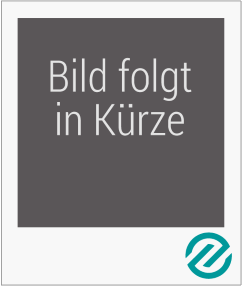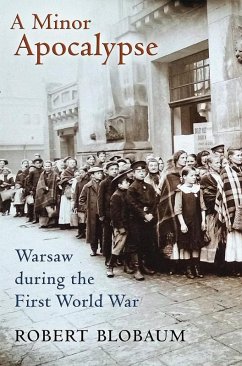
A Minor Apocalypse (eBook, ePUB)
Warsaw during the First World War

PAYBACK Punkte
7 °P sammeln!
In A Minor Apocalypse, Robert Blobaum explores the social and cultural history of Warsaw's "forgotten war" of 1914-1918. Beginning with the bank panic that accompanied the outbreak of the Great War, Blobaum guides his readers through spy scares, bombardments, mass migratory movements, and the Russian evacuation of 1915. Industrial collapse marked only the opening phase of Warsaw's wartime economic crisis, which grew steadily worse during the German occupation. Requisitioning and strict control of supplies entering the city resulted in scarcity amid growing corruption, rapidly declining living ...
In A Minor Apocalypse, Robert Blobaum explores the social and cultural history of Warsaw's "forgotten war" of 1914-1918. Beginning with the bank panic that accompanied the outbreak of the Great War, Blobaum guides his readers through spy scares, bombardments, mass migratory movements, and the Russian evacuation of 1915. Industrial collapse marked only the opening phase of Warsaw's wartime economic crisis, which grew steadily worse during the German occupation. Requisitioning and strict control of supplies entering the city resulted in scarcity amid growing corruption, rapidly declining living standards, and major public health emergencies.
Blobaum shows how conflicts over distribution of and access to resources led to social divisions, a sharp deterioration in Polish-Jewish relations, and general distrust in public institutions. Women's public visibility, demands for political representation, and perceived threats to the patriarchal order during the war years sustained one arena of cultural debate. New modes of popular entertainment, including cinema, cabaret, and variety shows, created another, particularly as they challenged elite notions of propriety. Blobaum presents these themes in comparative context, not only with other major European cities during the Great War but also with Warsaw under Nazi German occupation a generation later.
Blobaum shows how conflicts over distribution of and access to resources led to social divisions, a sharp deterioration in Polish-Jewish relations, and general distrust in public institutions. Women's public visibility, demands for political representation, and perceived threats to the patriarchal order during the war years sustained one arena of cultural debate. New modes of popular entertainment, including cinema, cabaret, and variety shows, created another, particularly as they challenged elite notions of propriety. Blobaum presents these themes in comparative context, not only with other major European cities during the Great War but also with Warsaw under Nazi German occupation a generation later.
Dieser Download kann aus rechtlichen Gründen nur mit Rechnungsadresse in A, D ausgeliefert werden.







